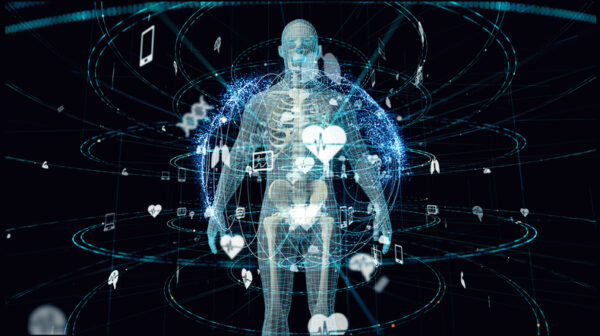As the world has united against a common enemy – Covid-19, the industry often associated with moving fast and breaking things has begun moving fast to fix things. From Elon Musk promising to make ventilators to IBM providing access to supercomputers, and countless other examples, the tech industry has rallied brands big and small to combat the virus.
In the last month, the tech industry has united to extend their funds, their production capabilities and even new technologies to help face this global threat. While some of the solutions were merely short-term fixes for immediate problems, many will undoubtedly have long-lasting effects on how we will find, diagnose and care for the sick. Already, AI has proved effective at tracking viral spread, managing patient requests and improving patient experience.
Tracking and analysis
This global pandemic is by no means the first instance where AI has been used to analyze, track, predict and combat a threat. It is however, the biggest and most global example of its use in tracking illness. China quickly mobilized a range of technology including thermal scanners to identify individuals with high body temperatures to extrapolate and feed their AI tracking. In Canada, AI-powered interventions company BlueDot, warned of the emerging threat even before the Centers for Disease Control did. The algorithm sifted through reams of information ranging from news media reports to animal disease networks to identify a “flu-like outbreak.”
When it has come to helping healthcare systems keep up with the fast-moving crisis, AI has been crucial. Globally, healthcare industries have been able to stretch their cash and resources by leveraging AI to analyze chest X-rays for signs of coronavirus, itemize hospital beds and supplies, remotely detect high temperatures to stop sick people from entering public spaces and gauge patient responses to experimental treatment. AI has even been used to test which drugs are likely to be most effective at combating Covid-19 and so much more.
Due to the sheer number of tools being developed, not all of these AI solutions will become tools that are used regularly, or even sit in the toolbox to fight future pandemics. But their rapid development and deployment reveal an industry that is hungrier for innovation now more than ever. One of the ways this has manifested is the deployment of AI beyond tracking and analysis. Instead, artificial intelligence is dealing with patients directly to help alleviate the strain on health workers.
Relieving the pressure on overwhelmed medical professionals
As the outbreak spread, medical professionals have been flooded with people calling into doctors’ offices or coming into emergency rooms with minor symptoms. The onslaught of panicked people quickly overwhelmed ERs and medical call centers worldwide. The rush of concerned people required healthcare professionals to divert time from treating the sick to make what are largely negative Covid-19 assessments and potentially exposed medical staff and immunocompromised hospital residents to infection when a handful of inquirers were positive.
To help address these concerns many solutions have been developed by Big Tech and others to help screen for indicators of COVID-19 at home. For our part, we quickly corralled resources to try and reduce person-to-person interaction to “flatten the curve.” Cognitive agents like Amelia have been deployed so that whether sheltered-in-place or quarantined at home, any member of the general public is able to reach an AI-powered cognitive assistant by voice call or a browser to receive an assessment of risk as well as additional information about the pandemic. Once an individual engages with the assistant in conversation, they are assessed on their current symptoms and risk factors based on the latest information from the Center for Disease Control and Prevention (CDC) and The World Health Organization (WHO). Without putting themselves or others in danger.
The future of an integrated health system
What this pandemic has shown is that the healthcare industry, which is typically very risk-averse, can be made more dynamic through technological investments. Leveraging AI not only has value in a pandemic but also in tracking illness, managing inventory and pushing innovations, such as ventilators capable of supporting multiple people.
Additionally, the patient experience and their health outcomes can improve through AI. While AI is not a replacement for human medical professionals at all levels, it has been proven to accelerate diagnosis by reviewing scans and making connections instantly based on a patients’ history. It has also been deployed to assess risk factors and help patients manage their symptoms as AI conversation assistants are available 24/7 to provide additional information, assessments and even appointment scheduling. Ultimately, every one of these new applications has provided Americans with greater access to healthcare.
As the tech industry does everything it can to help fight the pandemic, we will continue to see developments that are not only beneficial to helping us fight this crisis and the next, but also advancements that impact how the healthcare system works on daily basis. Within a few years, I expect that consumers will get a lot more practice interacting with conversational AI Assistants as they engage with their regular healthcare needs.
Photo: metamorworks, Getty Images
Dr. S. Vincent Grasso is Global Practice Lead: Healthcare & Life Sciences at IPsoft. A trained surgeon, software architect, and business analyst, Dr. Grasso is actively engaged in shifting the delivery of healthcare from a centralized to a decentralized (distributed and mobile) environment through the optimization and integration of a unified communication platform. He aims to—among other things—enhance the patient experience, mitigate clinical risk, improve clinical outcomes, and provide healthcare systems with a competitive advantage via augmented revenue streams. In addition to leading IPsoft’s Healthcare & Life Sciences division, Dr. Grasso has held leadership positions within the public and private sector domestically and internationally. He received his MBA from the University of Massachusetts Amherst, MSIS from New Jersey Institute of Technology, DO from Des Moines University, surgical residency from the Mount Sinai School of Medicine Manhattan Program, advanced minimally invasive surgery fellowship from the Department of Surgery at Yale University, and advanced medical informatics related research and development at Yale NASA CSCMITA.
This post appears through the MedCity Influencers program. Anyone can publish their perspective on business and innovation in healthcare on MedCity News through MedCity Influencers. Click here to find out how.











